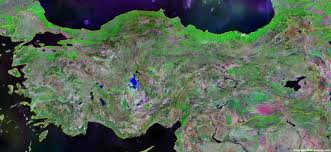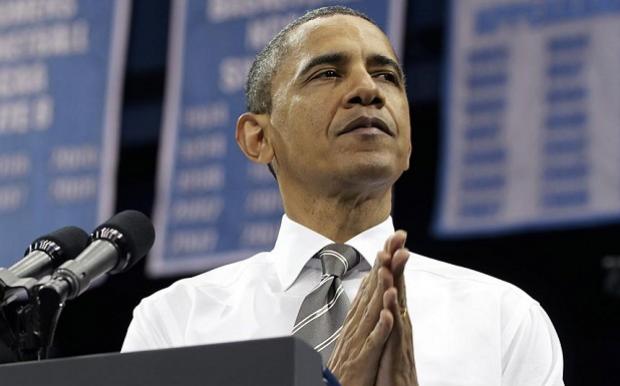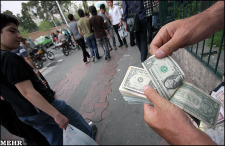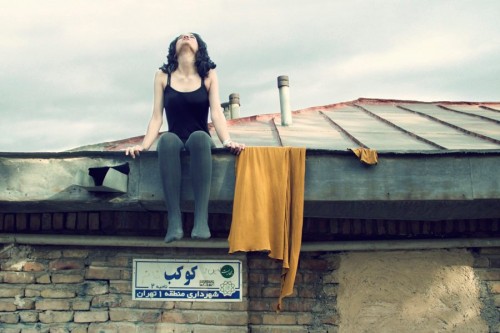Iran Video Interview: Mahmoud Ahmadinejad with France 24
President Ahmadinejad's interview with France 24 on Wednesday, covering topics such as Iran's nuclear programme and the violence in Syria:
President Ahmadinejad's interview with France 24 on Wednesday, covering topics such as Iran's nuclear programme and the violence in Syria:
See also Iran Special: Tehran's View of Nuclear Talks --- Insight, Propaganda, or Self-Deception?
The Latest from Iran (30 May): Profiting from the Sanctions
 2049 GMT: Justice Watch. In an interview with Fars, Abdolhossein Ruholamini --- conservative political activist and father of one of the men killed in the Kahrizak detention centre in summer 2009 --- has said that Presidential advisor Saeed Mortazavi will be charged in the case, probably as an accessory to murder.
2049 GMT: Justice Watch. In an interview with Fars, Abdolhossein Ruholamini --- conservative political activist and father of one of the men killed in the Kahrizak detention centre in summer 2009 --- has said that Presidential advisor Saeed Mortazavi will be charged in the case, probably as an accessory to murder.
Mortazavi was Tehran Prosecutor General at the time of the abuse and deaths.
Ruholamini said no date for trial had been set but Mortazavi's file had been sent to the court.
 1900 GMT: Danish EU affairs minister Nicolai Wammen says the biggest problem of Turkey's EU accession process is the matter of the freedom of press.
1900 GMT: Danish EU affairs minister Nicolai Wammen says the biggest problem of Turkey's EU accession process is the matter of the freedom of press.
1830 GMT: Addressing to the nation, Prime Minister Erdogan said:
Due to the recent bitter incident happened in Uludere, our security forces, institutions and government are being targeted alltogether. Even not these; but our brotherhood is being targeted through the exploitation of Uludere and of the pain.
Unfortunately, the opposition also shows such a problematised approach at this matter. Unfortunately, some media organisations don't and even can't take side with the nation in such an important, national and essential matter like terror.
Those who do not trust in the institutions, politicians and administrators of this country go and carry this exploitation policy to its peak by believing in those intentional publicaitons of foreign countries. Be sure of this, my dear citizens... The state does its part and will do so following the Uludere incident.
 Ban Ki Moon,
Ban Ki Moon,  RRecep Akdag,
RRecep Akdag,  Syria,
Syria,  Turkey,
Turkey,  undefined
undefined 2100 GMT: Syria. The names of 12 of the 15 men whom, according to insurgents, were executed in a fertiliser plant outside Homs today:
1 - Mohammad Tawfik Bakkar
2 – Ibrahim Ismail Bakkar
3 – Khaled Abdel Najib Barro
4 – Adnan Omar al-Yassin
5 – Sulaiman Abdel Qader Satto
6 – Samer Mohammad Bakkar
7 – Abdel Kafi Hasan Bakkar
8 – Mohammad Abdo al-Zirai
9 – Maher Ahmad Taleb
10 – Hamed Saadiyeh
11 – Mohammad Mahmoud Satouf
12 – Yehia Sabri Buzan
1946 GMT: Syria. Insurgents claim 15 men have been executed at their workplace, a fertiliser plant, in Buwaydah Al Sharqiyah, outside Homs.
A Facebook account linked with the Free Syrian Army in Baba Amr claims that the FSA found the men:
This picture is from the first to arrive of the massacre committed in Albuweyda Alsharqiyah today where 15 men from the fertiliser plant were abducted by regime thugs, tortured and executed with close-range bullets.
Julian Assange at the Oslo Freedom Forum in 2010
The past three years has seen a dramatic shift in the way news and information about events around the world are generated, processed ,and consumed. At the time that governments started chasing Assange, the movement was in its infancy. Perhaps they thought putting him behind bars would end it. Now, thanks in part to the Arab uprisings, that wave has swept past Assange and his fate.
The genie that is citizen journalism cannot be put back in the lamp. Because for Assange's supporters, and indeed for some of his detractors, this is not about the founder of one significant outlet. It is about all the others and their right to exist as part of a free, meaningful, and competent press.
 The Iranian belief --- if it is is genuine --- that it still has some leverage because of European weakness and fear is significant. It indicates that Tehran will persist with a defiant approach in Moscow. If it even chooses to address the nuclear issue as central, it will restate its demand not only for some enrichment of uranium on its soil, but for enrichment to 20% --- the level beyond bounds for the 5+1 Powers. It will refuse any reduction of activity at the Fordoo enrichment activity, let alone the closure demanded by the US and the Europeans. It will offer no concession, ahead of an easing of sanctions, over inspections and safeguards by the IAEA.
The Iranian belief --- if it is is genuine --- that it still has some leverage because of European weakness and fear is significant. It indicates that Tehran will persist with a defiant approach in Moscow. If it even chooses to address the nuclear issue as central, it will restate its demand not only for some enrichment of uranium on its soil, but for enrichment to 20% --- the level beyond bounds for the 5+1 Powers. It will refuse any reduction of activity at the Fordoo enrichment activity, let alone the closure demanded by the US and the Europeans. It will offer no concession, ahead of an easing of sanctions, over inspections and safeguards by the IAEA.
The Islamic Republic will offer none of this because it believes that it can win the game of diplomatic "chicken". The Moscow talks will break up with no advance.
Two weeks later, it will be 1 July and the imposition of the European Union's cut-off of Iranian oil. Then we will see if propaganda and mis-perception gives way to cold economic reality.
 1800 GMT: One again, Turkish Foreign Ministry calls on Turkish citizens not to travel to Syria for their own safety.
1800 GMT: One again, Turkish Foreign Ministry calls on Turkish citizens not to travel to Syria for their own safety.
1720 GMT: When asked about his opinion regarding the government's plan to prepare an abortion law, Health Minister Recep Akdag said:
Some say, 'what if something happens to the mother'. If necessary, the state will take care of that baby. If we are to make law on this, we need to take measures accordingly.
1455 GMT: The families of civilians killed in Uludere are reportedly going to stage a sit-in protest in the same area Turkish jets bombed since the murderers have not been found in the last five months.
1420 GMT: It is reported that Turkish Armed Forces (TSK)'s special units coupled with around 200 vehicles and Cobra helicopters are sent to the province of Sirnak while operations are continuing flat out in another province of Mus.
 In interviews with The New York Times, three dozen of his current and former advisers described Mr. Obama’s evolution since taking on the role, without precedent in presidential history, of personally overseeing the shadow war with Al Qaeda.
In interviews with The New York Times, three dozen of his current and former advisers described Mr. Obama’s evolution since taking on the role, without precedent in presidential history, of personally overseeing the shadow war with Al Qaeda.
They describe a paradoxical leader who shunned the legislative deal-making required to close the detention facility at Guantánamo Bay in Cuba, but approves lethal action without hand-wringing. While he was adamant about narrowing the fight and improving relations with the Muslim world, he has followed the metastasizing enemy into new and dangerous lands. When he applies his lawyering skills to counterterrorism, it is usually to enable, not constrain, his ferocious campaign against Al Qaeda — even when it comes to killing an American cleric in Yemen, a decision that Mr. Obama told colleagues was “an easy one.”
See also Iran Feature: The Week in Civil Society --- From House of Cinema to "Forbidden City"
The Latest from Iran (29 May): Putting Parliament in Place
 2015 GMT: Rafsanjani Watch. Muhammad Sahimi has provided a translation of former President Hashemi Rafsanjani's interview with Jomhouri Eslami about the nuclear talks. Like others within the regime, Rafsanjani portrays the Obama Administration --- despite its weapon of sanctions --- as dealing from weakness, in this case setbacks in Iraq and Afghanistan. However, his assessment of tactics in last week's Baghdad discussions is a shrewd assessment, rather than a promotion of Islamic Republic triumph or US perfidy:
2015 GMT: Rafsanjani Watch. Muhammad Sahimi has provided a translation of former President Hashemi Rafsanjani's interview with Jomhouri Eslami about the nuclear talks. Like others within the regime, Rafsanjani portrays the Obama Administration --- despite its weapon of sanctions --- as dealing from weakness, in this case setbacks in Iraq and Afghanistan. However, his assessment of tactics in last week's Baghdad discussions is a shrewd assessment, rather than a promotion of Islamic Republic triumph or US perfidy:
It appears that they [the P5+1] are united for the negotiations. Even China and Russia have said that Iran must stop uranium enrichment. In the past they never applied such pressure, and this has made the situation somewhat difficult.
After the Istanbul meeting [on 14 April], both Iran and the West made statements that created false optimism. We wanted to create some hope in the country, and the Westerners, due to the economic problems that they have, needed the negotiations. But it became clear in Baghdad that things are not that way. We still do not have complete information, and it is not easy to evaluate and analyze. What is clear is that they have come forward with the weapon of sanctions and say that, using them, we have forced Iran to come to the negotiation table.

Photographer Hoda Rostami in her "Forbidden City"
Last week we reported on the national re-launch of the so-called “moral security” project. The campaign has now gone beyond streets and reached mountains and parks as well.
The Forbidden City
While the Moral Security project is implemented with full force, the Iranian-Swedish artist, Hoda Rostami, challenges the treatment of her peers through the lens of her camera. Rostami’s collection of photographs from Tehran shows Iranian women freed from imposed hijab in current day-to-day situations. In an article on Tehran Review, the artist describes the motivation for her work:
My street photography soon turned into my concern for myself and
others around me in a city and country that I loved, [so] I depicted
it in another way, as I liked it to be. This collection is more of a
manifest and an expression of words that appear to have been forbidden
for years in this city.